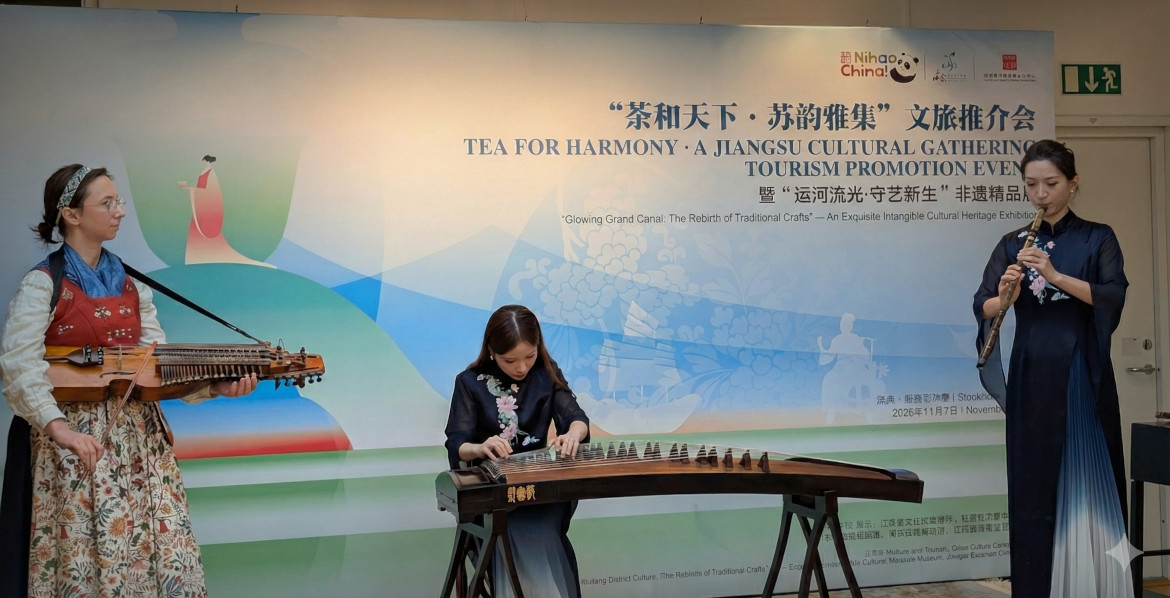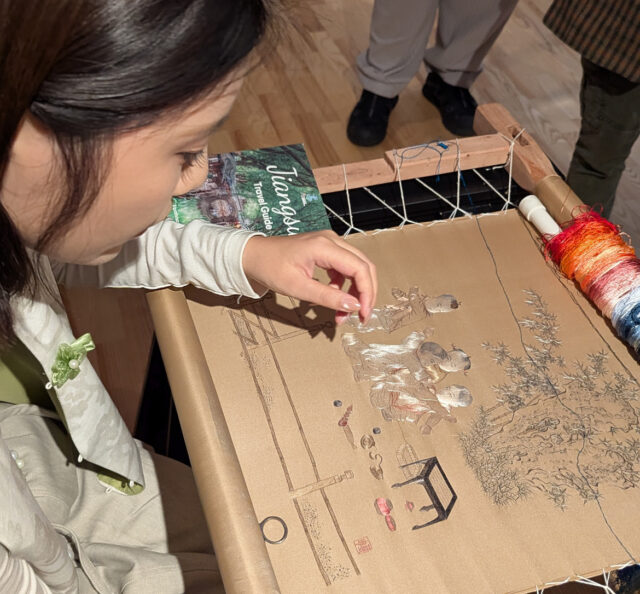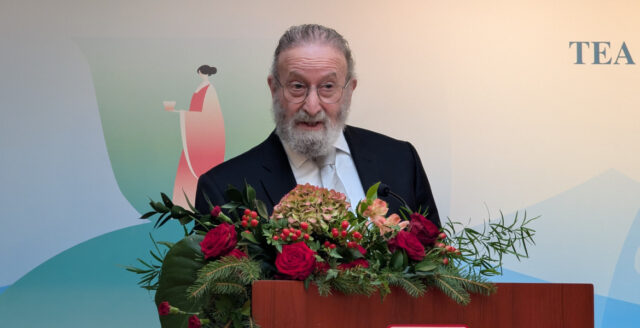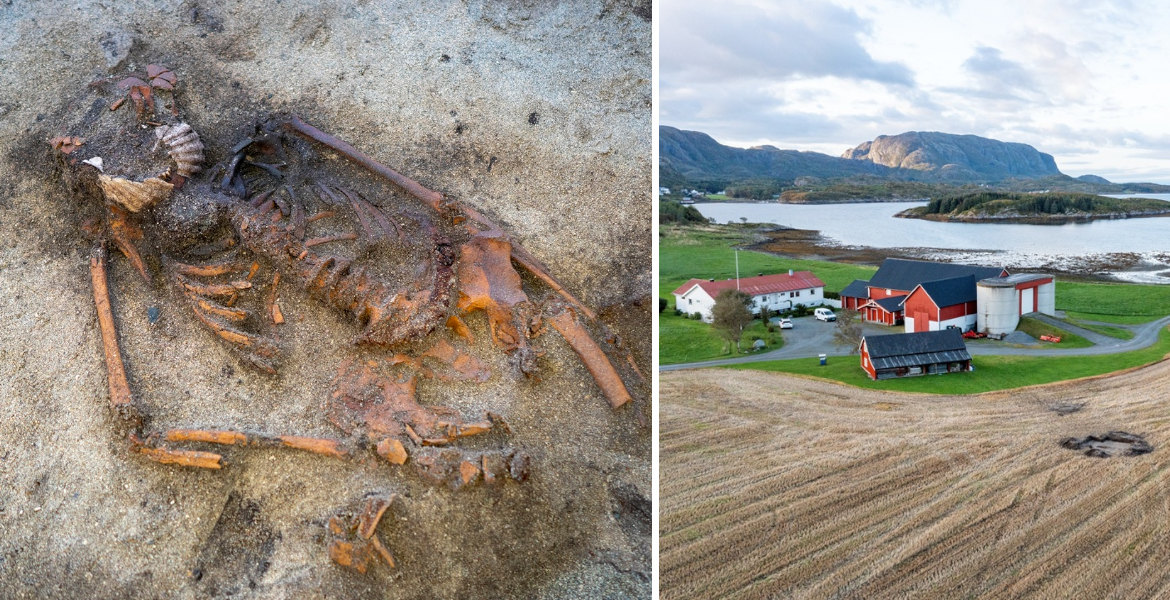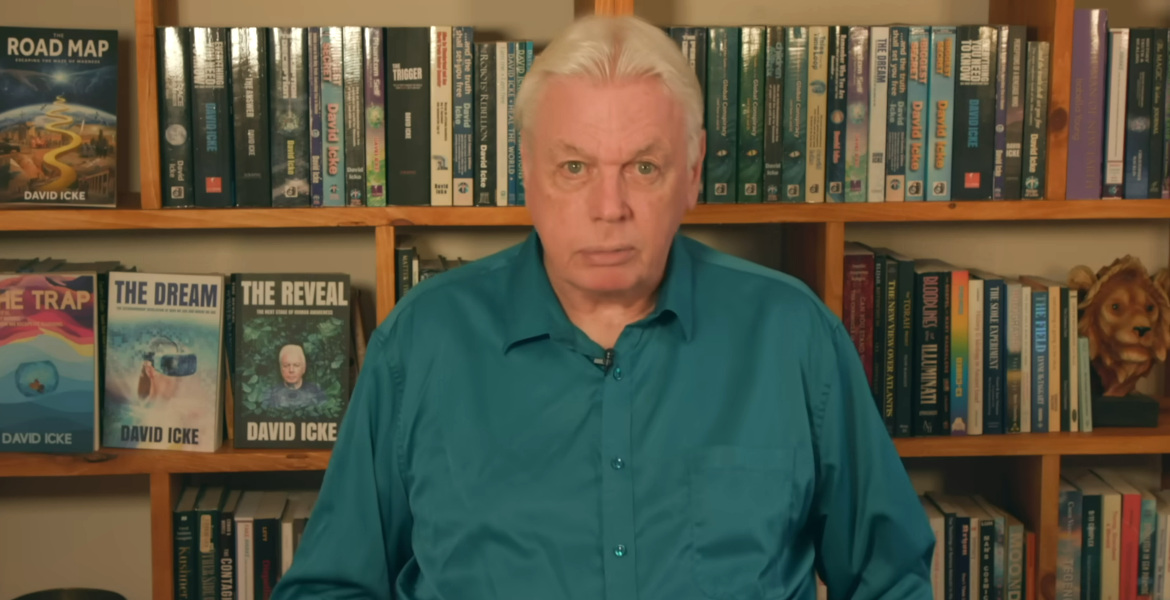No expense was spared at the Stockholm Concert Hall on Sunday as the People's Republic of China celebrated 75 years since the nation's founding. In addition to mingling with refreshments and a speech by China's Ambassador to Sweden Cui Aimin, the Shanghai Philharmonic Orchestra offered a magnificent concert that prompted one resounding applause after another from an enraptured audience.
The celebration was also attended by the newly appointed Swedish Minister for Development Cooperation and Foreign Trade, Benjamin Dousa.
After the audience had stood and listened to both the Swedish and Chinese national anthems, the celebration of the national day, which formally falls on October 1, began with a solemn speech by China's Ambassador to Sweden, Cui Aimin.
Mr. Aimin began his speech by drawing attention to the country's current socio-economic prosperity.
– Over the past 75 years, the Chinese people, under the leadership of the Communist Party of China, have continued to struggle and accomplish two great achievements: China's rapid economic development and long-term social stability.
According to Mr. Aimin, this prosperity (in addition to the hard work of the Chinese people) is based on the wise and strong leadership of the Communist Party. At the same time, he refers to the Chinese state's promotion of “people's democracy in the whole process of ensuring people's participation in state affairs”.

The Ambassador further points out that the Chinese leadership is “determined to pursue the Chinese path of human rights development”, referring to China's active participation in “human rights governance globally”.
It also mentioned the “300 priority reform tasks” adopted at the Third Plenary Session of the 20th Central Committee of the Communist Party of China earlier this year, which Aimin says “provide a solid guarantee for Chinese-style modernization and offer more new opportunities for China and the rest of the world to deepen win-win cooperation and develop together”. China's continued economic strength “demonstrates the international community's strong confidence in China's development potential”. This development potential, referred to as "high-quality development" and "new qualitative productive forces" , is of course a fundamental aspect of China's relationship with the outside world.
– In this way, China also contributes more to the development and prosperity of the world, said Ambassador Aimin.
He concluded by noting that it is now 74 years since the establishment of diplomatic relations between China and Sweden, and that the relationship between the two countries has “developed steadily” and “achieved great success”. The Ambassador referred to “fruitful cooperation achievements” in “technology and research, green and low-carbon innovation, and sustainable development” and “great exchange activities” in “culture, education, sports and other fields”.
The Ambassador concluded his speech with the words:
– Next, the Shanghai Philharmonic Orchestra, which has come all the way from China to Sweden, will give us a grand musical feast with its amazing skills. Let us now listen to the harmonious sounds of integration and mutual learning between Eastern and Western civilizations, celebrate the 75th anniversary of the People's Republic of China, and wish that China-Sweden relations move towards a brighter future.

After the Ambassador's speech, it was time for the main event of the evening: the Shanghai Philharmonic Orchestra under the baton of the young, but renowned, conductor Zhang Liang, a judgment that was obviously shared by many of the spectators, judging by the enthusiastic shouts of “what a conductor!” which were heard a number of times during the concert.
The evening's program, which consisted of classical arrangements of both Chinese and Western composers, such as Antonín Dvořák and Johannes Brahms, was as majestic and impressive as it was captivating and dynamic. One of the musical highlights of the evening was the first violinist's solo passage, which without virtuoso excesses held the audience's attention in a silk-wrapped iron grip.

Another obvious highlight of the evening was the soloist, Liu Wenwen, China's first doctor of philosophy in the traditional Chinese trumpet-like instrument suona. Dressed in a glittering blue evening gown, she performed in perfect harmony with the symphony orchestra the suona concerto Hundreds of Birds Pay Tribute to the Phoenix, an experience that cannot be well described in words, except that the connection to birds was very obvious.
The final number of the evening was Carl Sjöberg's setting of the Gustaf Geijer's poem from 1879, arranged by the orchestra's resident composer Peng-Peng Gong - a combination that hardly left many spectators unmoved.
Cultural editorial team
Facts about China's National Day
China's National Day is formally celebrated on October 1. The celebration marks the proclamation of the People's Republic of China in 1949 following the victory of Mao Zedong's Communist Party in the war against Chiang Kai-Shek's Nationalist Kuomintang Party, which until then ruled the Chinese mainland and after the war retreated to Taiwan.
Sweden was the first Western country to establish diplomatic relations with the People's Republic of China, in 1950.
Short feature on the Shanghai Philharmonic Orchestra's Sweden tour


